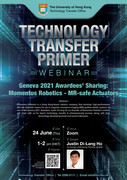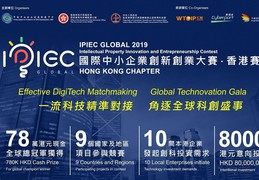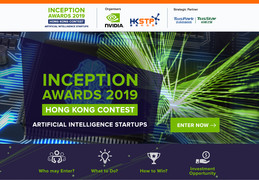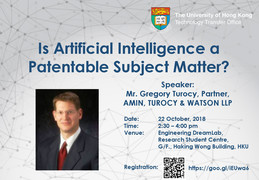HKU Industry Forum 2023 - New Energy & New Materials
23 Aug 2023
Back to Events

|
About the Forum The HKU-Industry Forum brings together a number of thought leaders on New Energy & New Materials technologies with the objective to enhance the relevance of HKU’s research to the needs of the Industry. It serves as a platform for exchanging ideas and fostering deep connections between HKU and the industry. A concurrent showcase zone will be arranged to display the relevant HKU technology offerings to the attendees. |
Showcased Project Teams & Start-ups
 |
Professor, Department of Chemistry, Faculty of Science |
|
Focus Areas
Project Highlight
Researcher and Lab Page |
|
 |
|
|
|
Chair Professor of Future Electronics, Department of Mechanical Engineering, Faculty of Engineering |
|
Focus Areas
Researcher and Lab Page |
|
|
|
|
|
|
Professor, Department of Mechanical Engineering, Faculty of Engineering |
|
Focus Areas
Project Highlight Energy harvesting from abundant waste heat and CO2 sources - We introduce a novel approach to energy harvesting from abundant waste heat and CO2 sources, utilizing CO2-induced thermally regenerative electrochemical cells (cTRCs). cTRCs capitalize on the concentration differences of CO2 absorbed in the electrolyte, functioning as a supercapacitor with induced open-circuit voltages.
Researcher and Lab Page |
|
 |
|
|
|
Professor, Department of Electrical and Electronic Engineering, Faculty of Engineering |
|
Focus Areas the design, physics, and mechanism of organic/inorganic optoelectronic devices; plasmonic nanostructures, nanoscale structures, and the hybrid systems with organic/inorganic materials; the multi-physical (optical, electrical, and thermal) properties and applications of the hybrid systems.
Project highlight Solution-processed Flexible Transparent Electrodes and Reflective Electrodes - Prof Choy’s team invented silver nanowire (NW) based flexible transparent electrodes (FTEs) and silver nanoparticle (NP) electrodes. They both have attractive electrical and optical properties, and low-cost. By integrating both inventions (that is disposing a layer of nanoparticle on the NW FTEs), it can be used as flexible organic photovoltaics.
Researcher and Lab Page |
|
 |
|
|
|
Associate Professor, Department of Mechanical Engineering Faculty of Engineering |
|
Focus Areas Advanced nanofabrication technology and its applications in nanophotonics, nanoelectronics and nanofluidics, to address challenges in energy conversion/storage, bio and chemical sensing for healthcare and environment monitoring
Researcher and Lab Page |
|
 |
|
 |
Associate Professor, Department of Mechanical Engineering, Faculty of Engineering |
|
Focus Areas
Project Highlight thermoelectric materials for energy conversion applications - Thermoelectric materials can convert heat into electricity by using temperature gradients to induce charge carriers to flow in materials. The primary applications of these materials are in power generation and solid-state refrigeration. Compared to traditional dynamic heat engines, thermoelectric materials do not contain moving parts and are thus more reliable mechanically and completely silent. More importantly, thermoelectrics are of great significance to renewable energy generation because of their ability to directly convert waste heat into electrical power. This class of materials has attracted increasing research interest in recent years owing to their promising performance in the sustainable energy industries.
Researcher and Lab Page |
|
 |
|
|
|
Assistant Professor, Department of Electrical and Electronic Engineering, Faculty of Engineering |
|
Focus Areas
Start-up Highlight SESIC - relying on HKIU-WISE research group, has formed a young interdisciplinary research and development team with members aged between 25 and 35. The team's expertise covers materials engineering, biomedical engineering, electronic engineering, software engineering, artificial intelligence, and more. Currently, the team consists of 2 professors, 3 post-doctoral researchers, 11 Ph.D. students, and 15 master's students.
Researcher and Lab Page |
|
 |
|
.png) |
Assistant Professor, Department of Electrical and Electronic Engineering, joint appointment with School of Biomedical Sciences |
|
Focus Areas
Start-up Highlight Xon Vision Limited - The start-up was founded and led by Dr. Zhiqin Chu. It sets diamonds as the technical origin to develop and expand to scientific research and applications into various fields: physics, chemistry, engineering, biology, and medicine. The company aims to conceive and develop a diamond-based optical anti-counterfeiting solution.
Quanta Diamond Technologies Limited - The start-up is focusing on utilising room-temperature diamond-based quantum processors for education purposes. Incubated out of the Precision Biosensing and Biophysics research laboratory led by Dr. Zhiqin Chu, we leverage our technical expertise to bring quantum technology out of the lab and into the field for commercial applications.
Researcher and Lab Page |
|
 |
|
|
|
Assistant Professor, Department of Chemistry, Faculty of Science |
|
Focus Areas
Project Highlight Safe and Efficient Hydrogen Storage Tank - The aim of this research is to develop efficient and safe hydrogen storage tank for vehicles using porous materials, metal-organic frameworks (MOFs) and covalent organic frameworks (COFs). This is essential as we move towards a hydrogen economy, where hydrogen is expected to serve as a crucial energy carrier. However, a significant challenge impeding this transition is the absence of efficient and safe methods for hydrogen storage.
Researcher and Lab Page |
|
 |
|
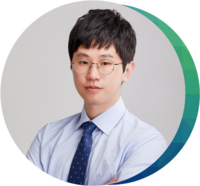 |
Assistant Professor, Department of Mechanical Engineering, Faculty of Engineering |
|
Focus Areas
Project Highlight Self-powered Electronics -The wearable and implantable electronics are attracting increased interest for applications in health and activity trackers due, in part, to their ability to dramatically improve the convenience, comfortability, and sensibility. While those devices are emerging as the health and activity trackers, they face many potential challenges, such as potential toxicity to the human being, inaccuracy sensing, and flexible and stretchable power supplier.
Researcher and Lab Page |
|
 |
|
 |
Assistant Professor, Dental Materials Science, Faculty of Dentistry |
|
Focus Areas • Dental Biomaterials • Material Characterization • Molecular Dynamics • CAD-CAM and 3D Printing
Project Highlight 3D-printed Smart Orthodontic Clear Aligner - aims to develop a 3D-printed smart orthodontic clear aligner with a built-in optical quantum strain sensor that can directly measure the orthodontic force and provide accurate information on the generated orthodontic force (magnitude and direction) to improve clinical treatment results. Meanwhile, this technology can be applied not only to orthodontic clear devices, but also to human health monitoring and advanced prosthetics.
Researcher and Lab Page |
|
 |
|
|
|
Assistant Professor (Geotechnical Engineering), Department of Civil Engineering, Faculty of Science |
|
Focus Areas
Project Highlight Microbially induced calcium carbonate precipitation (MICP) is a promoting method for transforming soils into bio-soils, which improve the strength of the soil to form an environmentally friendly construction material. Changing the crystalline form of calcium carbonate by alternating current (AC) may be a possible way to break the upper limit of the strength. The unconfined compressive strength (UCS), calcium carbonate content and permeability were used to evaluate the treatment effect of AC-assisted MICP.
Researcher and Lab Page https://www.civil.hku.hk/pp-humm.html |
|
 |
|
 |
Assistant Professor (Geotechnical Engineering), Department of Civil Engineering, Faculty of Science |
|
Focus Areas
Researcher Page |
|
 |
|
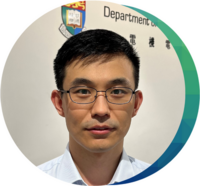 |
Research Assistant Professor, Department of Electrical and Electronic Engineering Faculty of Engineering |
|
Focus Areas
Project Highlight Electric vehicles (EVs) are being strategically developed in a global context. EVs have many advantages including reduced gas emissions and oil dependence. The electrical machine is one of the most critical components in EV propulsion, which desires high efficiency, high power/torque density, wide speed range, and high robustness. The differential function can be also realized by the electric machine. Wireless power transfer (WPT) can transmit power contactlessly, which brings the superiority of waterproof, sparkproof, and shockproof. Based on WPT, wireless EV charging and wireless motoring have drawn attention and show great potential in EV applications.
Researcher and Lab Page |
|
 |
|
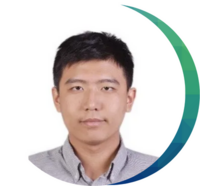 |
Research Assistant Professor, Department of Mechanical Engineering, Faculty of Engineering |
|
Focus Areas
Start-up Highlight AMBR Tech based at the Air Pollution and Clean Energy Lab within the Department of Mechanical Engineering at The University of Hong Kong. Led by the esteemed Professor Dennis Y.C. Leung, our team has been dedicated to the development of aqueous batteries for the past decade. Our research has resulted in numerous high-quality publications, including in prestigious journals such as Science Advances and Advanced Energy Materials. Additionally, we have been recognized with numerous awards and media interviews for our patented technologies. To complement our academic expertise, our team includes experienced R&D engineers from BYD company as advisors. Collectively, we bring a potent blend of technical knowledge, industry experience, and business acumen to the company.
Researcher and Lab Page |
|
E-Newsletter
Get the latest technology and news from us
If you do not wish to receive emails from us in the future, you can send an unsubscribe request to us by email to info@tto.hku.hk.


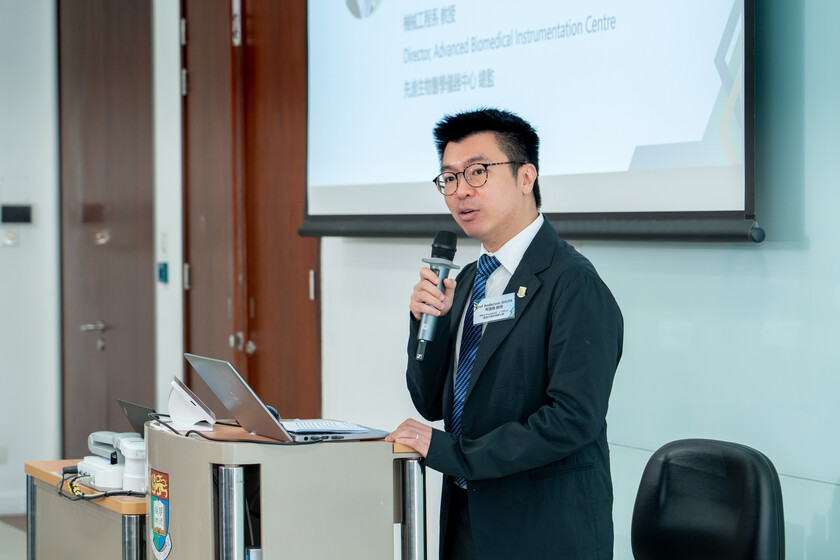
.png)

.png)

.png)

.png)
